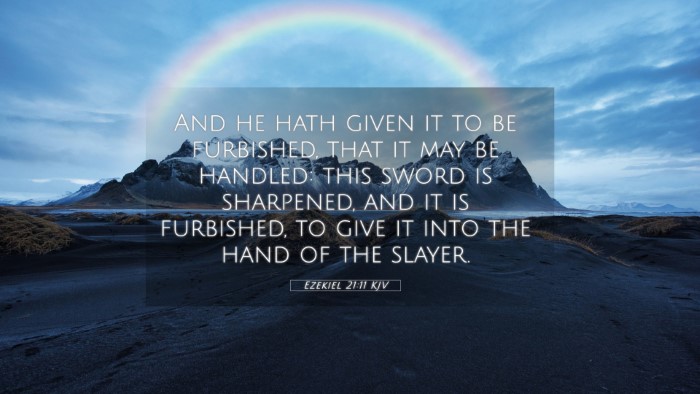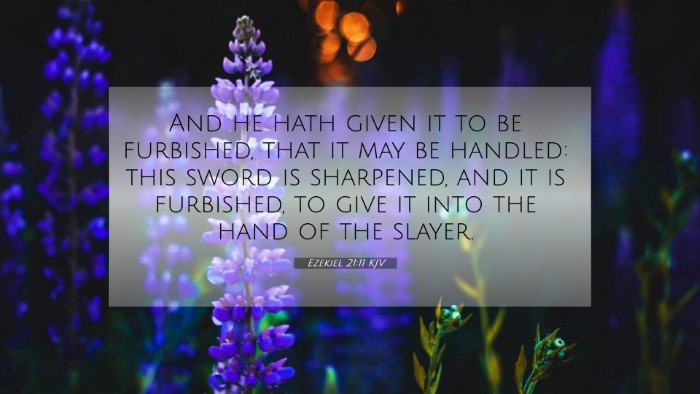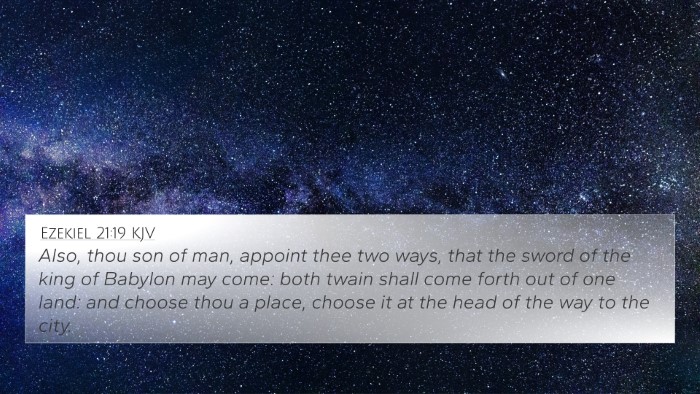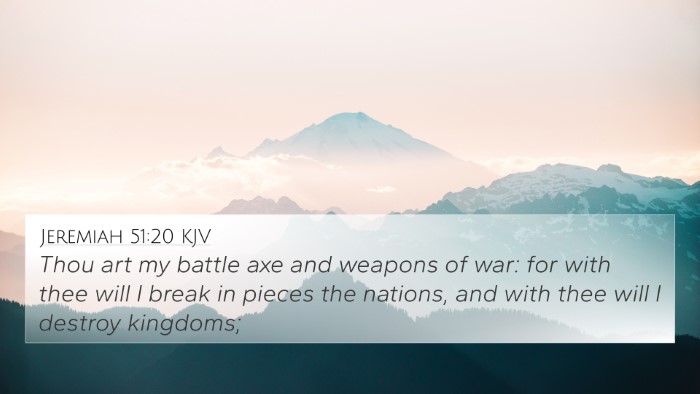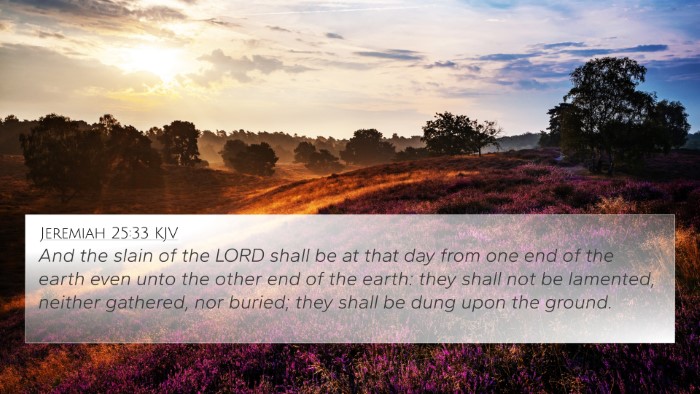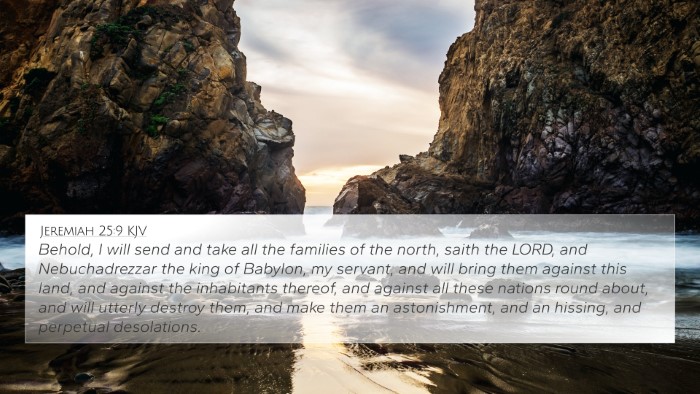Ezekiel 21:11 Explained
Bible Verse: Ezekiel 21:11 - "And he hath given it to be furbished, that it may be handled: this sword is sharpened, and it is furbished, to give it into the hand of the slayer."
Summary of Insights
The verse from Ezekiel 21:11 illustrates God’s sovereignty and His use of instruments of judgment. This scripture is rich with meaning and serves as a conduit for understanding the broader themes in the Bible regarding divine justice, the role of judgment, and the idea of preparedness for the consequences of sinful actions.
Interpretation from Public Domain Commentaries
-
Matthew Henry:
Henry emphasizes that the sword represents God's judgment. It is both prepared and sharpened, symbolizing that God's decrees are ready to be executed. The phrase "given into the hand of the slayer" indicates that the judgment will be carried out through chosen means, serving as a warning to the people of Israel about the impending destruction due to their iniquities.
-
Albert Barnes:
Barnes provides an analysis where he notes that the sharpening of the sword signifies the inevitability of God’s judgment. He highlights the readiness of the sword as a metaphor for the impending catastrophe that is about to befall Jerusalem, reinforcing the theme of divine retribution and the importance of heeding divine warnings.
-
Adam Clarke:
Clarke stresses on the symbolism of the sword in relation to God's authority. He points out that "furbished" indicates the perfect preparation of the means by which the Lord will execute judgment, and it serves to remind the people of Israel to reconsider their path, knowing the consequences of ignoring God’s commandments.
Key Themes Explored
- Judgment: God's judgment is certain and meticulously prepared, a recurring theme throughout the Scriptures.
- Divine Authority: The imagery of the sword signifies God's power to judge and execute justice upon the unrighteous.
- Preparation: The act of sharpening and furbishing implies readiness, both in the divine plan and in the response that is expected from humanity.
- Warnings: Ezekiel’s prophecies serve as solemn warnings to the people, encouraging them to seek repentance.
Cross-References to Ezekiel 21:11
Here are some related Bible verses that provide deeper insights into the themes presented in Ezekiel 21:11:
- Ezekiel 30:24: "And I will strengthen the arms of the king of Babylon, and the arms of Pharaoh shall fall down." - This displays God’s determination in rendering judgment.
- Jeremiah 47:6: "O thou sword of the LORD, how long will it be ere thou be quiet?" - Reflects on the discussion of divine judgment and its implications.
- Isaiah 27:1: "In that day the LORD with his sore and great and strong sword shall punish leviathan the piercing serpent." - The symbolism of the sword continues as a tool of divine consequence.
- Psalms 7:12-13: "If he turn not, he will whet his sword; he hath bent his bow, and made it ready." - A direct connection to the concept of preparedness of divine judgment.
- Hebrews 4:12: "For the word of God is quick, and powerful, and sharper than any two-edged sword." - Parallels how God’s word serves as a means of judgment and clarity.
- Revelation 1:16: "And he had in his right hand seven stars: and out of his mouth went a sharp two-edged sword." - Links the imagery of power and judgment across both testaments.
- Romans 12:19: "Dearly beloved, avenge not yourselves, but rather give place unto wrath: for it is written, Vengeance is mine; I will repay, saith the Lord." - Reinforces the theological aspect of God orchestrating justice.
Understanding the Impact
Ezekiel 21:11 serves as a powerful reminder of the seriousness of divine judgment. The references and insights drawn from public officials like Matthew Henry, Albert Barnes, and Adam Clarke, support a deeper understanding of the Bible and its interconnectedness.
Thematic connections with other scriptures can lead to an enriched reading experience, encouraging further investigation into how these verses dialogue with one another across both the Old and New Testaments.
Conclusion
This verse is a profound component of the larger narrative regarding God’s justice and humanity's accountability. Understanding it through the lens of cross-referencing enhances one's grasp of Biblical themes and God's unwavering authority.

